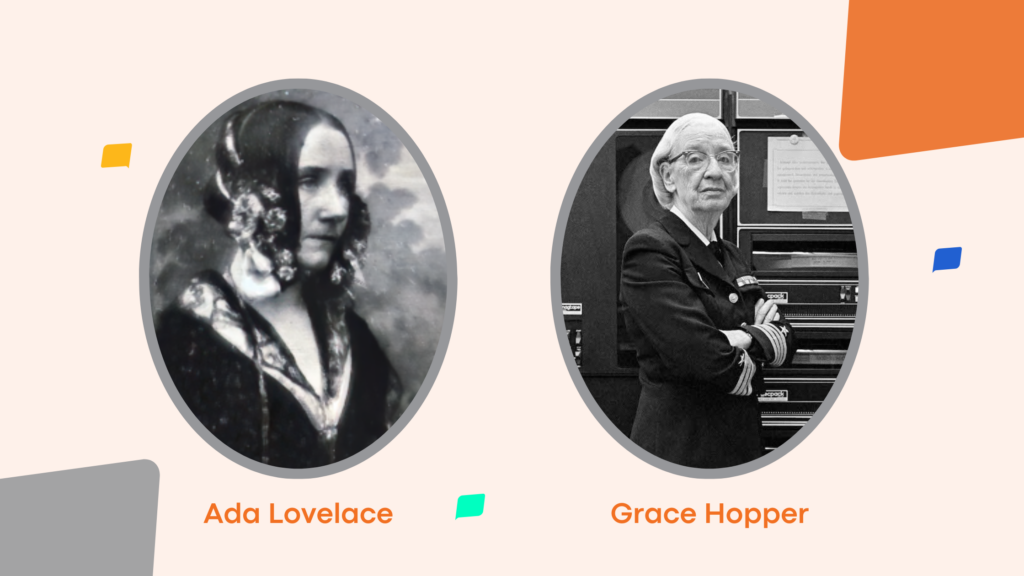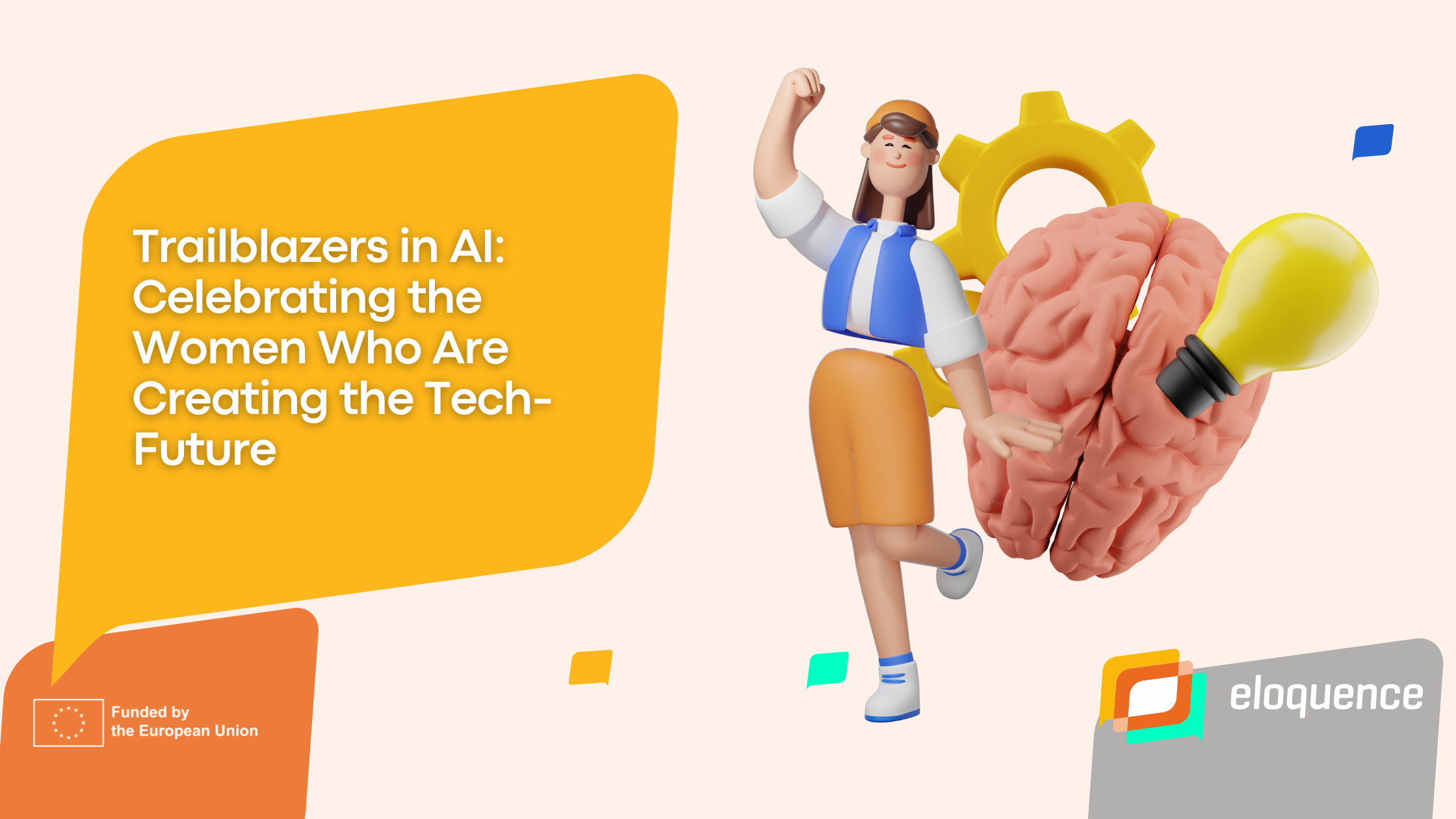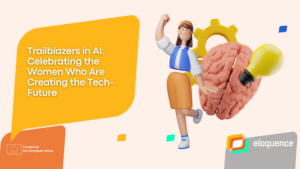Artificial Intelligence is helping the modern world such as medicine helps – to live easier, smoothly resolving all daily tasks, from cooking to writing reports and creating content for businesses. Behind many advancements stand brilliant women whose contributions have shaped and continue to redefine the AI landscape. As part of our Women in AI campaign, we’re celebrating these trailblazers—women from past and present who have paved the way for innovation and inspire the next generation to dream big. This blog is a tribute to their legacy, a reminder of the importance of diversity in technology, and a call to empower more women to lead in AI.
Pioneers Who Opened the Paths
Female participation in Artificial Intelligence and technology has not started today; it started way before AI became a trend. The first and certainly one of the most famous pioneers of computer science is Ada Lovelace, who, back in the 1840s sketched out the possibilities of Babbage’s Analytical Engine beyond computing. It was a vision of hers that gave birth to programming and formed the basis of today’s computing.
Much later, Grace Hopper, known as “the Queen of Code”, created the first compiler that translated human-readable code into machine-readable instructions. Her innovation not only revolves around the way we write programs but also has become a door to technology for many.
These women made not just contributions, but they opened doors where people tried to tell women they did not belong in technology.

Modern Innovators: Women Leading AI Today
Today, women are not just contributors but leaders driving transformative advancements in AI.
Fei-Fei Li, a professor at Stanford University and co-director of the Human-Centered AI Institute, has been a trailblazer in deep learning and computer vision. She is best known for her work on ImageNet, a large-scale dataset that has been instrumental in training and advancing AI systems. Fei-Fei has also been a vocal advocate for diversity in AI and the importance of human-centred approaches to technology. Her efforts have influenced everything from healthcare to autonomous systems, ensuring AI serves humanity’s best interests.
There is also another remarkable woman – Joy Buolamwini, the founder of the Algorithmic Justice League. Joy’s research on bias in AI has explained how self-driving cars, facial-recognition systems, and recommendation and hiring tools misclassify women and people of colour. Based on her research, she has created awareness of the unconscionable nature of AI and some machine learning technology has been called upon to act accountably and fairly.
Last but not least, Rana el Kaliouby – co-founder of Affectiva – has established the Emotion AI. Having introduced machines to understanding emotions, the author has expanded possibilities of enhancing interaction, mental health care, and efficiency of users’ experiences. The current strategic plan bears Rana’s vision of an innovative business model anchored on advanced technologies and a strong sense of responsibility for the use of AI in business.
Why Diversity Matters in AI
Diversity isn’t just a buzzword; it’s a critical factor for innovation. Women in AI bring unique perspectives that help address ethical challenges, reduce bias, and create solutions that work for everyone. For instance, researchers like Joy Buolamwini have exposed bias in AI systems, advocating for fairer and more inclusive technology. The inclusion of diverse voices ensures that AI serves society responsibly. Without diversity, AI risks perpetuating stereotypes, overlooking key user needs, and reinforcing inequities.
As December is the month of celebration of these incredible trailblazers through the “Women in AI” campaign, here’s how you can support women in AI:
- Amplify Their Stories: Share posts and articles highlighting their achievements.
- Encourage Young Women: Inspire girls to pursue STEM careers by showcasing role models.
- Promote Inclusivity: Advocate for workplace policies that support diversity and inclusion.
From Ada Lovelace to Joy Buolamwini, women have been shaping the tech future for centuries. Their stories are a testament to the power of perseverance, creativity, and vision. As we look ahead, let’s continue to celebrate their contributions, support their efforts, and inspire the next generation of trailblazers.
Plus information:
If you are interested in meeting women who specialize in language and speech technologies, combining cutting-edge research with practical applications – register for the upcoming webcafe scheduled for the 18th of December at 2 pm on the Zoom platform.


